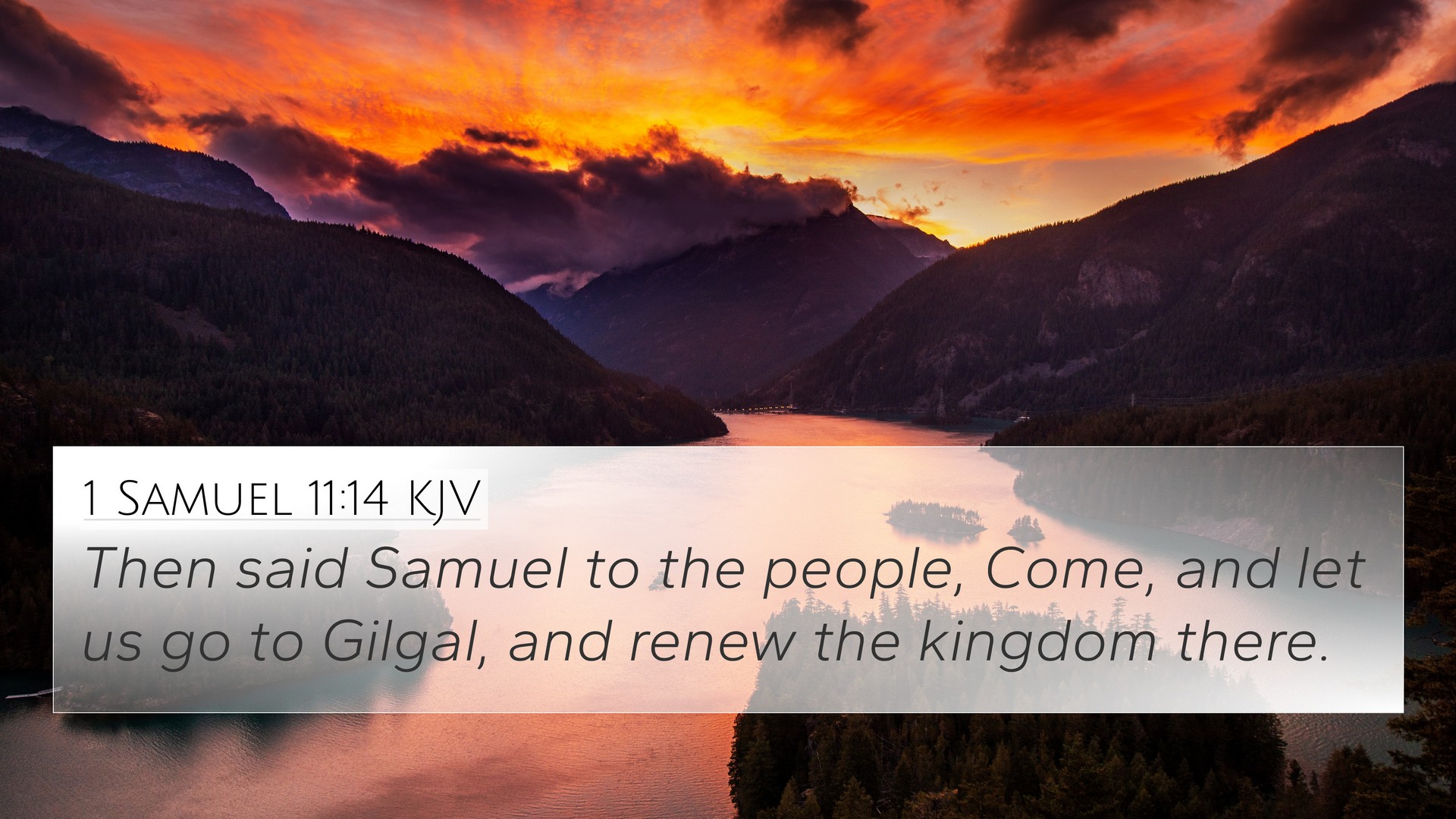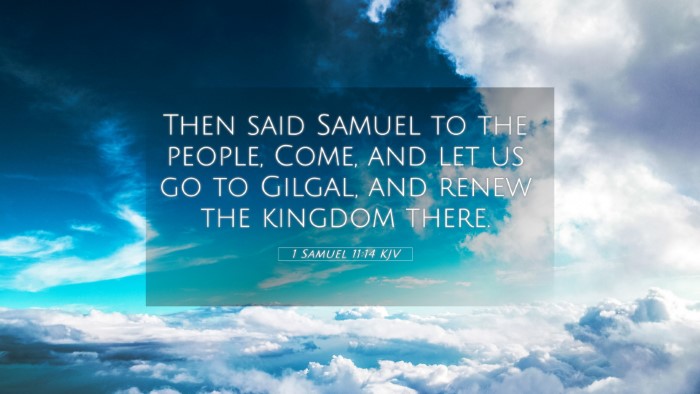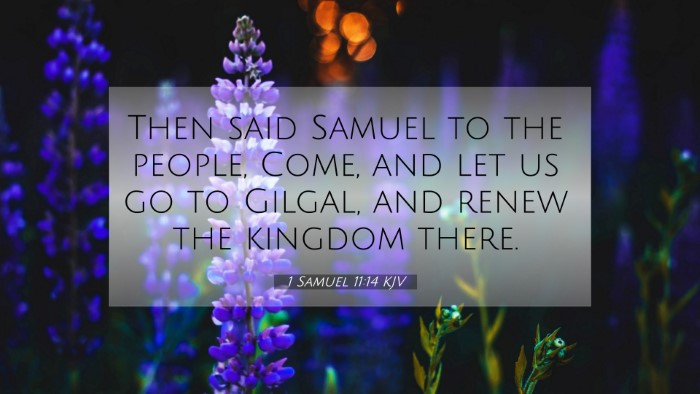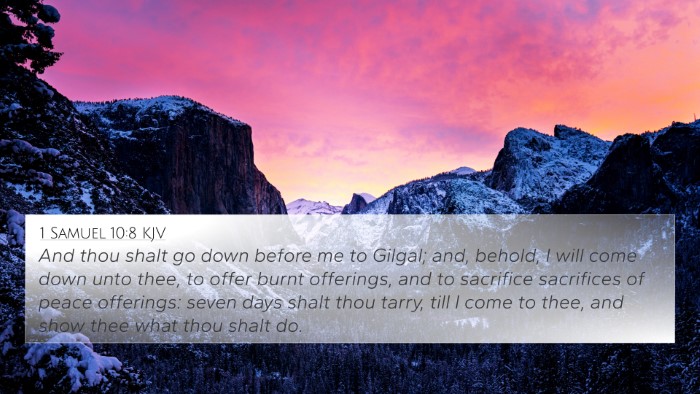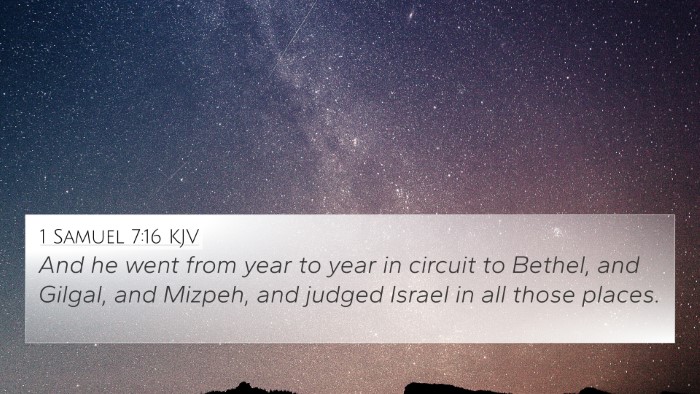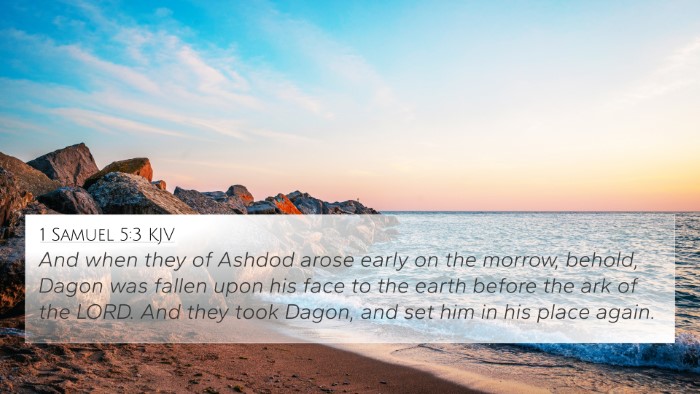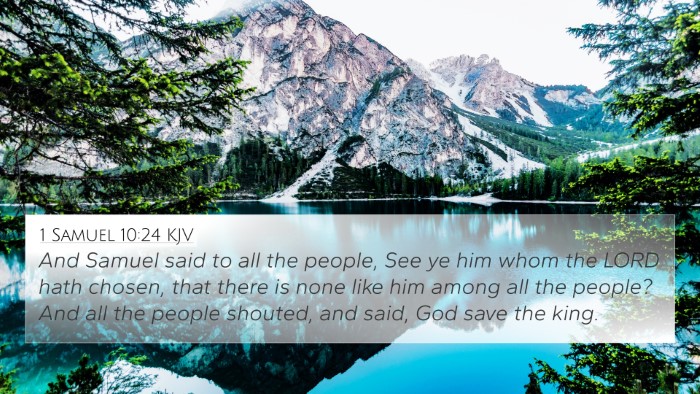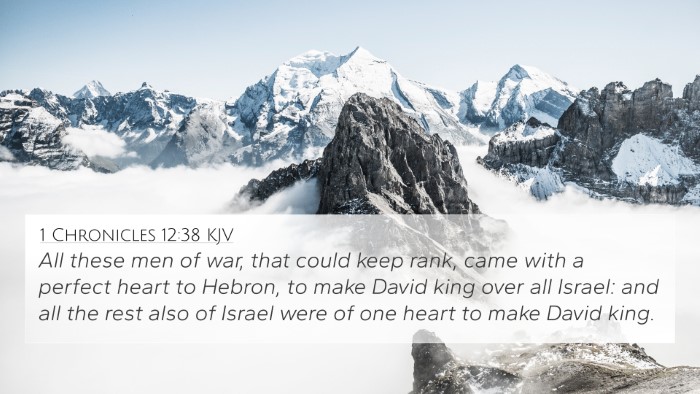Understanding 1 Samuel 11:14
Verse: "Then said Samuel to the people, Come, and let us go to Gilgal, and renew the kingdom there."
This verse occurs in a moment of significant transition in Israel's history, marking the establishment of Saul as king after the successful defense against the Ammonites. It encapsulates the importance of the community coming together to reaffirm their commitment to God's chosen leader.
Summary of Insights from Popular Commentaries
Drawing insights from respected public domain commentaries such as those from Matthew Henry, Albert Barnes, and Adam Clarke, we can extract the following themes:
- The Significance of Unity: Samuel's call to gather at Gilgal emphasizes the importance of unity among the people of Israel. They come together to show their agreement with God's decision to anoint Saul as their king, reinforcing their collective identity.
- Renewal of the Kingdom: The act of renewing the kingdom signifies not just a political appointment but a spiritual commitment. The people, by coming together, reaffirm their loyalty to God and His governance through Saul.
- Historical Context: In their journey, the Israelites have faced numerous challenges. This renewal marks a pivotal moment where they move forward under God's guidance, putting their past struggles behind them.
- Public Recognition of Leadership: Samuel's direction to gather for this significant event indicates the role of public acknowledgment in leadership. Saul's kingship is not only a divine appointment but requires the people's acceptance.
- The Role of Prophetic Leadership: Samuel's guidance showcases the vital function of the prophet as both a spiritual leader and a mediator between God and His people, highlighting the ongoing dialogue that is essential in their governance.
Bible Verse Cross-References
The following Bible verses offer deeper insights and thematic connections with 1 Samuel 11:14:
- 1 Samuel 10:24 - "And Samuel said to all the people, See ye him whom the Lord hath chosen?" This verse introduces the people to Saul, creating the groundwork for their collective decision in 11:14.
- 1 Samuel 12:1-2 - Samuel reminds the people of his integrity as their leader, reinforcing their commitment in the light of Saul's kingship.
- 1 Chronicles 12:38-40 - This passage details the assembly of warriors under David, highlighting the importance of community support for their leaders.
- Deuteronomy 17:14-15 - This scripture outlines God's instructions for appointing a king, foreshadowing Israel's request for kingship and its divine implications.
- Acts 13:21 - This New Testament reference ties Saul’s kingship to God's sovereignty and the supernatural unfolding of His plans through human choices.
- Matthew 18:19-20 - Jesus discusses the power of agreement among believers, which mirrors the gathering in 1 Samuel 11:14.
- Philippians 1:27 - Paul speaks about standing firm in one spirit, resonating with the unity expressed by the Israelites in their acceptance of Saul!
Thematic Connections and Inter-Biblical Dialogue
The themes presented in 1 Samuel 11:14 establish connections to other Biblical texts, creating an inter-Biblical dialogue that enriches our understanding of governance, community, and faithfulness:
- The Role of Community: Similar to the themes highlighted in Hebrews 10:24-25, the coming together at Gilgal signifies communal faith and shared responsibility in leadership.
- Elections and Divine Choice: Proverbs 21:1 reflects the sovereignty of God in leadership, while 1 Peter 2:9 discusses a chosen people, indicating God's intentional choice in governance.
- Renewal and Commitment: The idea of renewing a covenant also aligns with Jeremiah 31:31-34, where God promises a new covenant, demonstrating the importance of fresh commitments in the spiritual journey.
Conclusion
1 Samuel 11:14 encapsulates pivotal truths about unity, leadership, and community in the realm of faith. By examining the cross-references and thematic connections, readers can appreciate the intricate dialogue woven throughout Scripture, highlighting the essence of covenant community and divine oversight in governance.
